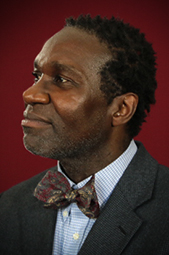Harold Greene
Harold Greene
Professor of Psychology


Degrees
- Ph.D., Cognitive/Experimental Psychology, University of Georgia
- M.S., Cognitive/Experimental Psychology, University of Georgia
- B.A., Psychology, Queen's University, Canada
Biography
Harold Greene is a professor of psychology at University of Detroit Mercy. He obtained a Bachelor of Arts (Honors) from Queen's University, Canada, and a Master of Science and Doctorate in Cognitive/Experimental psychology from University of Georgia. Before coming to Detroit Mercy, Greene held research fellowships at the Center of Excellence for Research on Training (CERT) in Atlanta and at the University of Massachusetts at Amherst. He teaches perceptual/cognitive psychology, statistics, research methods, learning and memory, and cross-cultural psychology.
His research interests are aimed at determining functional limitations and asymmetries in visual attention processes. Experiments conducted in his laboratory utilize eye-tracking, electroencephalography (EEG/ERP), and Galvanic skin response (GSR) technology. The research is guided by updates of structural and functional connections in the brain, and by theories of visual attention. Laboratory members are encouraged to consider real-life implications of research results for attention-related processing/deficiencies in humans. Greene joined the Detroit Mercy faculty in 1999.
To learn more about Greene's research program, and publications, visit https://www.researchgate.net/profile/Harold_Greene/?ev=hdr_xprf.
Education
- Ph.D., Cognitive/Experimental Psychology, University of Georgia, 1996. Dissertation: Spatial interactions with real and illusory lines in a Vernier acuity task.
- M.S., Cognitive/Experimental Psychology, University of Georgia, 1993. Thesis: Location of boundaries in space: The influence of color and luminance.
- B.A., Psychology, Queen's University, Ontario, Canada, 1989. Thesis: Letter migration errors in two-word display sequences.
Awards
1998 Richard M. Griffith Memorial Award for research in psychology, awarded by the Southern Society for Philosophy and Psychology
